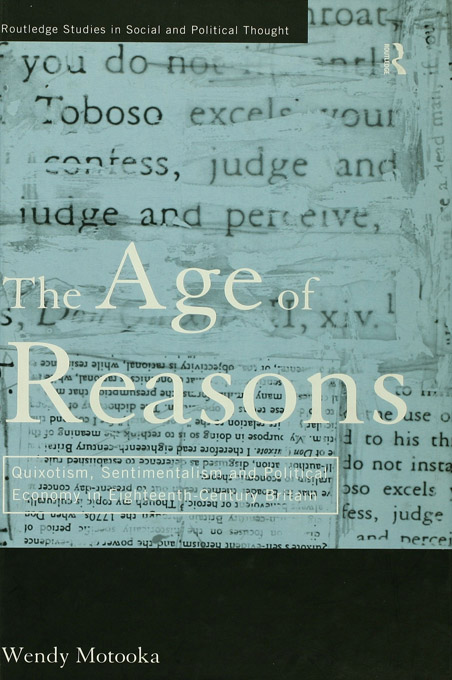The Age of Reasons reads Don Quixote as a parodic example of eighteenthcentury “reason.” Reason was supposed to be universally compelling, yet it was also thought to be empirically derived. Quixotic figures satirize these assumptions by appearing to be utterly insane, while reproducing the conditions of universal rationality: they staunchly believe that reason is universal, that it can be confirmed by experience, and that they themselves are rational. Quixotism is a rational madness. It challenges reason’s presumed authority as the neutral arbiter of all controversy by turning the definition of reason itself into an object of political controversy.
“The Age of Reason” was actually an Age of Reasons, Motooka contends. Joining imaginative literature, moral philosophy and the emerging discourse of the new science, she seeks to historicize the meaning of eighteenth-century “reason” and its supposed opposites, quixotism and sentimentalism. Reading novels by the Fieldings, Lennox and Sterne alongside the works of Adam Smith, Motooka argues that the legacy of sentimentalism is the social sciences. The Age of Reasons raises our understanding of eighteenth-century British culture and its relation to the “rational” culture of economics that is growing ever more pervasive today.
